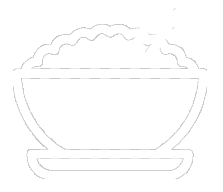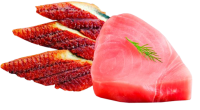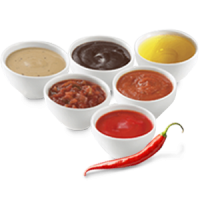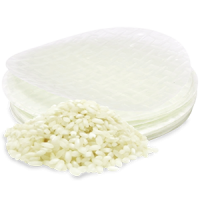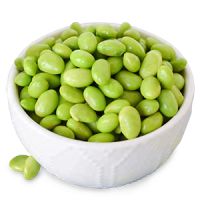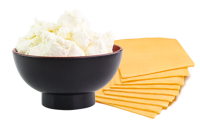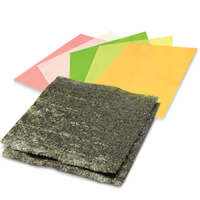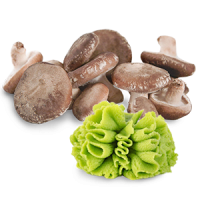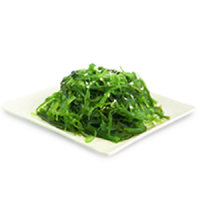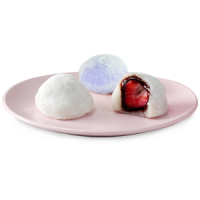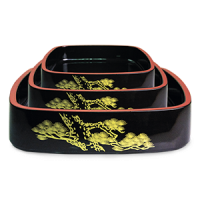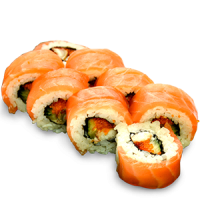Japanese cuisine has long conquered gourmets around the world. It attracts with a combination of refined flavors, healthy ingredients and a unique philosophical approach to cooking. The main principle of Japanese cooking – harmonious use of seasonal products and preservation of their natural essence.

Main features of Japanese cuisine
- Freshness and quality of products
One of the main features of Japanese cuisine is the extraordinary attention to the quality of ingredients. Fish and seafood – the basis of many classic dishes: from sushi and sashimi to ramen and soups. Thanks to fresh products, chefs achieve a balanced taste and wonderful texture. - Minimalism and elegance of presentation
Japanese cuisine is famous for its simple and at the same time elegant presentation of dishes. Here, each element is arranged in such a way as to emphasize its natural beauty. The main emphasis is on shape and color. Interestingly, the harmony of ingredients is important not only for taste, but also visually - the dish should look attractive. - The depth of taste “umami”
Along with salty, sweet, bitter and sour tastes, the Japanese distinguish a fifth basic taste - “umami”. It can be felt in many products: soy sauce, miso paste, broths based on kombu seaweed, bonito fish flakes (katsuobushi). It is umami that gives dishes their characteristic “saturation” and fullness. And to achieve it in a dish, to feel it on the taste of the guest - you really need to be a master of your craft and know the secrets of Japanese cooking. - Health care
The Japanese can boast one of the highest longevity rates in the world. It is the diet that plays an important role here. Protein-rich fish and seafood, vegetables and rice contain a minimum of saturated fats, and the processing of products is mostly very delicate. This helps preserve the nutrients in the ingredients. - A combination of tradition and modernity
Modern Japanese cuisine is eager to experiment with new combinations, enriching dishes with elements of other national cuisines. However, respect for the product, the season and natural harmony remains an integral tradition. In modern restaurants, they are willing to cook "fashionable" dishes, but will never betray rice, ramen or other traditional dishes.

“Morskyi Dim” – supplier of Japanese cuisine products to Ukraine
If you are looking for Japanese products, ingredients for your dishes, such as sauces and quality seafood for your restaurant, “Morskyi Dim” is guaranteed to become an assistant and reliable partner. We are distributors of world-famous Japanese and Asian brands and manufacturers with our own facilities located in the Kyiv region. As we specialize in importing and supplying a wide range of products needed for authentic Japanese and Asian dishes, we offer:
- Fish and seafood for sushi, sashimi for horeca establishments
- Soy sauce and other various professional sauces
- Authentic Japanese and Asian seasonings (wasabi, ginger, miola, etc.)
- Rice for sushi and other Japanese cuisine dishes
- Seaweed (nori, kombu), as well as bonito fish flakes
- Other ingredients for Asian and Japanese cuisine that will help bring to life both classic and fusion recipes for your horeca establishment
Thanks to “Morskyi Dim”, horeca establishments in Ukraine can offer their guests dishes with authentic Japanese flavor that preserve high quality and freshness of products.

We will help you choose high-quality ingredients for Asian cuisine for your chef, optimize the costs of purchasing the necessary products, as well as the time for preparing dishes. We advise, teach, conduct master classes, and share our expertise, because we are interested in developing your business.
«Morskyi Dim» - the best Japanese cuisine products for professional chefs in Ukraine.
Rules of good Japanese manners
Using chopsticks (hashi)
- Do not stick chopsticks vertically into the rice - this is related to funeral rites
- Do not pass food from chopstick to chopstick – this is also associated with ritual actions.
- Do not wave your chopsticks or point them at your interlocutors.
Polite gestures during meals
- Before eating, say “itdakimasu” (たたのたのたの) – “I accept this food with gratitude”.
- After eating “gochisosama desita” (ごちそうさまでした) – «thanks for the food, it was delicious».
Pouring drinks
- The Japanese first pour a drink for their neighbor, and they, in turn, pour it for them. This is a symbol of mutual respect and care.
“Loud” eating
- In Japan, sipping noodles is not considered indecent - on the contrary, it is a manifestation of the fact that the dish is delicious. It is a «thanks» to the chef for a delicious meal
Respecting food
- The Japanese try not to leave leftovers, as this shows respect for the chef and the food.
Polite expressions in Japanese
- すみません (sumimasen) – «Excuse me».
- おin a polite form.
- すみませんが «Excuse me, but…» (beginning of a polite request).
Discover the entire palette of Japanese cuisine and its unique style of service together with “Morskyi Dim” – a reliable supplier of quality products for catering establishments throughout Ukraine. Enrich your restaurant menu with new dishes and surprise your guests with the true taste of Japan!

